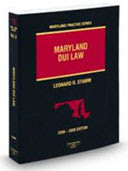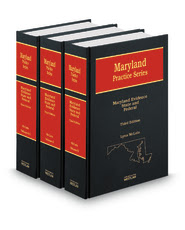Last week, the Supreme Court announced an 8-1 decision, authored by Justice Thomas, in the case of Kansas v. Glover, allowing a police officer to stop a car where the owner’s driver’s license was revoked, without first ascertaining that the driver was the owner. This represents a change in the law that will have the overall effect of bringing more people into criminal court.
As the Fourth Amendment applies to the states, the Fourth Amendment’s exclusionary rule also applies in state court. So if the officer obtains evidence against a person by way of some action that violates the Fourth Amendment, then the evidence is “suppressed,” meaning it cannot be used in court to prove the guilt of the person accused. The general rule is that a police officer may stop a car if the officer has what is called an articulable reasonable suspicion to believe the driver has committed, is committing, or is about to commit a crime.
Many officers now have tag readers, and as they drive around they get alerts when the Motor Vehicle Administration alerts that there is a problem with the vehicle registration or the driver’s license of the owner. Before this new decision, if an officer got an alert on a car that the owner’s driver’s license was suspended, the officer could pull up a photo of the owner on the laptop mounted above his or her console, and verify that the owner was driving the car before making the stop. Now if the tag reader alerts that the driver’s license of the owner is revoked, the stop can be made without first verifying the driver’s identity.
There are a couple of nuances worth noting here. The Court gave great weight to the revocation, as opposed to suspension, of the driver’s license. In Kansas, in order to get the driver’s license revoked, the driver must have displayed a high level of disregard for the motor vehicle laws. This disregard for the law leads to a permissible inference on the part of the officer that the owner is still disregarding the laws by driving. As the concurring opinion of Justice Kagan noted, the situation would be different where the driver’s license is suspended, for example, due to the failure to pay a minor traffic ticket.
The moral of this story is, if your license is revoked (or suspended) don’t drive until you have fixed the problem that led to the suspension or revocation.
If your driver’s license is revoked or suspended or pending revocation or suspension, call the law offices of Goldstein & Stamm, P.A. for assistance in restoring your driving privileges or attempting to avoid revocation or suspension.
Leonard R. Stamm
Goldstein & Stamm, P.A.
6301 Ivy Lane, Suite 504
Greenbelt, MD 20770
301-345-0122
(fax) 301-441-4652
www.dwiattorneymaryland.com
www.marylandduilawyer-blog.com

Author: All updates since 2013 to Maryland Evidence: State and Federal by Professor Lynn McLain
“Patience, Perseverance, Persuasion”
 Maryland DUI Lawyer Blog
Maryland DUI Lawyer Blog


